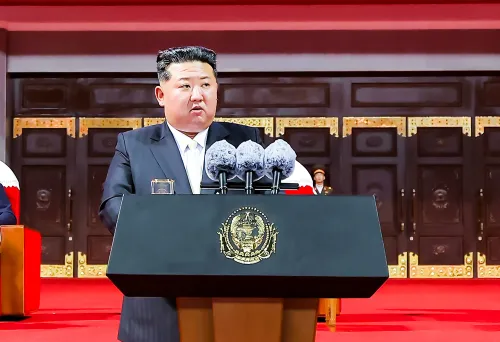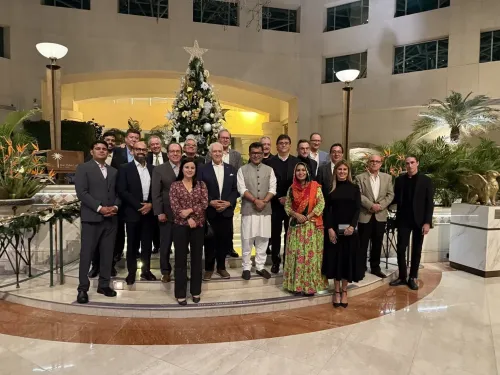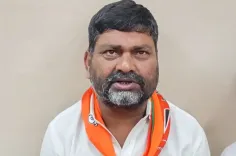Sindh Protests Intensify Against Indus Canal Initiative

Synopsis
Key Takeaways
- The PPP is actively protesting against new canals on the Indus.
- Protests will escalate with sit-ins across Sindh.
- Critics label the canal project as a threat to Sindh's agriculture.
- Thousands participated in rallies demanding a halt to the project.
- Concerns over water shortages and agricultural impact are paramount.
Sindh, March 26 (NationPress) The Pakistan Peoples Party (PPP), a key player in Pakistan's ruling coalition, has actively participated in the rising protests throughout Sindh province against the government's proposal to build six new canals along the Indus River.
During a rally, PPP's Sindh President Nisar Ahmed Khuhro announced that sit-in protests will occur in every taluka of the province as part of their escalating actions. Khuhro warned that they would block the National Highway if the central government fails to revoke the canal project.
“Our protest will persist until the federal administration retracts the plan for the Cholistan and other canals,” Khuhro stated, as reported by The Express Tribune.
The internal strife within the coalition has led to varying opinions, with Khuhro criticizing the Pakistani government, denouncing it as a “dictatorial federal government.”
He claimed that the federal government has resurrected memories of dictatorship by initiating the Cholistan Canal’s construction in Punjab without any constitutional approval.
Simultaneously, thousands from diverse backgrounds participated in massive rallies in both major and minor towns within Sindh. They filled the streets of their communities, holding banners and chanting against the ‘anti-Sindh’ project.
Prominent PPP leaders, including Mian Raza Rabbani, Waqar Mehdi, and Sadia Javed, organized a significant rally outside the Karachi Press Club. They addressed the crowd, stressing the ongoing water crises in Sindh's coastal areas like Sujawal and Badin, where sea intrusion has already devastated vast agricultural lands.
Raza Rabbani condemned the canal initiative, referring to it as a “death sentence” for Sindh, and warned that such canals would decimate millions of acres of the province's fertile soil. “If these canals are built, Sindh will transform into a desert, forcing millions into starvation and displacement,” Rabbani remarked.
Activists, political party members, civil society organizations, trade unions, and literary groups are united in opposition to the government’s plan to construct six canals on the Indus River. They consistently demand that the federal government of Pakistan should abandon this canal project.
The protests, echoing the call to “let the water flow,” have been prevalent across the province, with citizens denouncing such endeavors as “anti-people policies” and a “violation” of Sindh’s rights.









